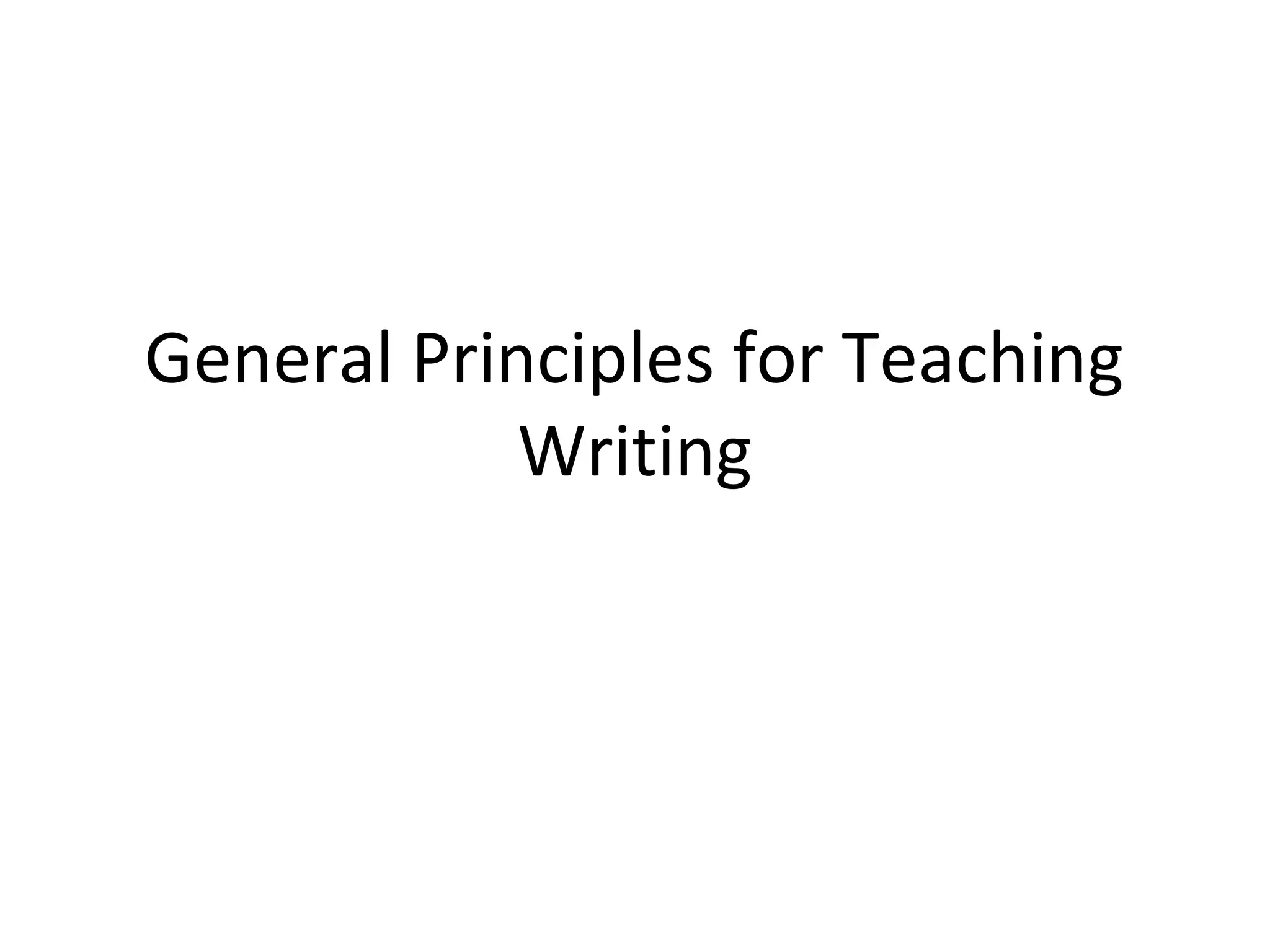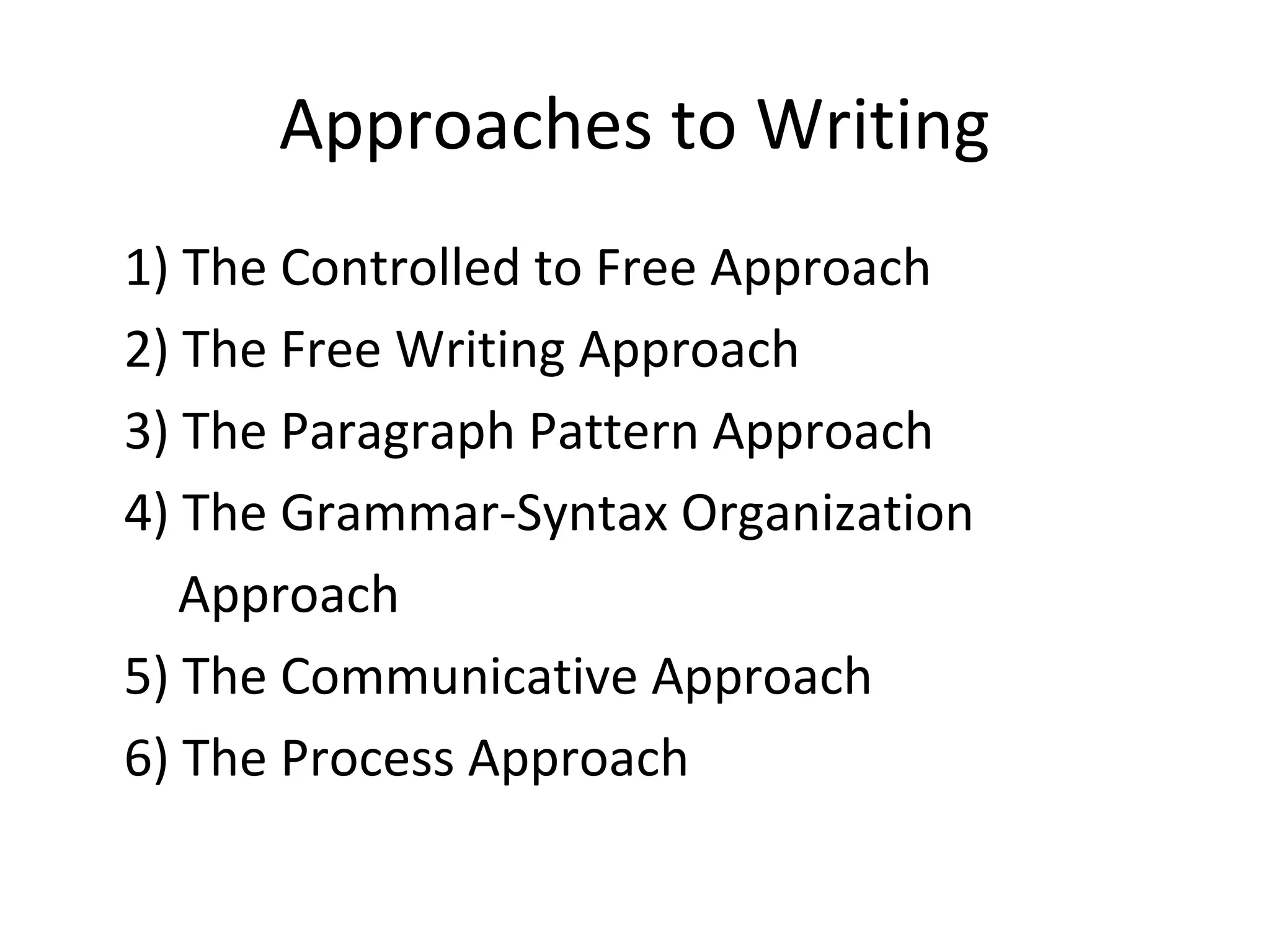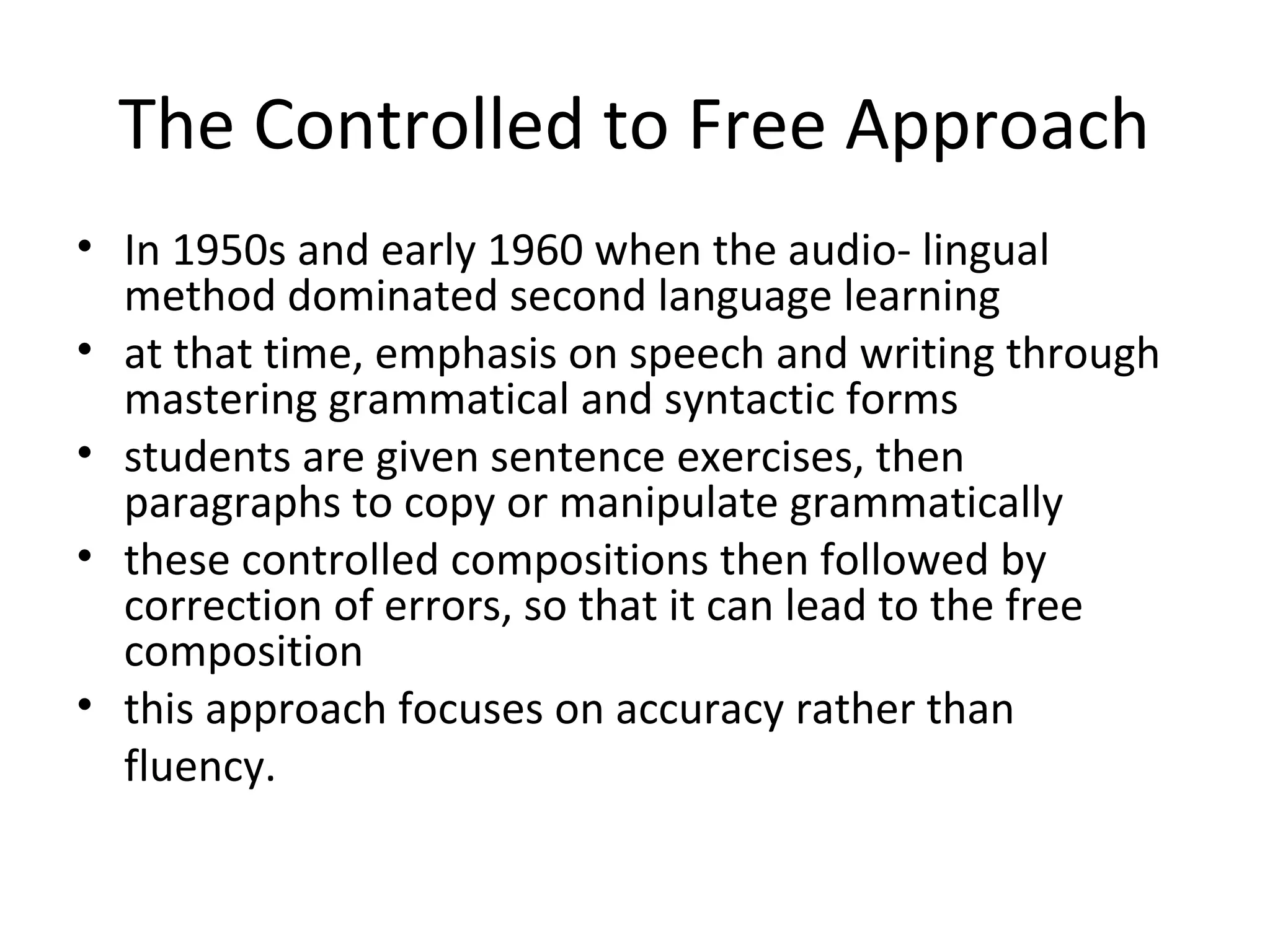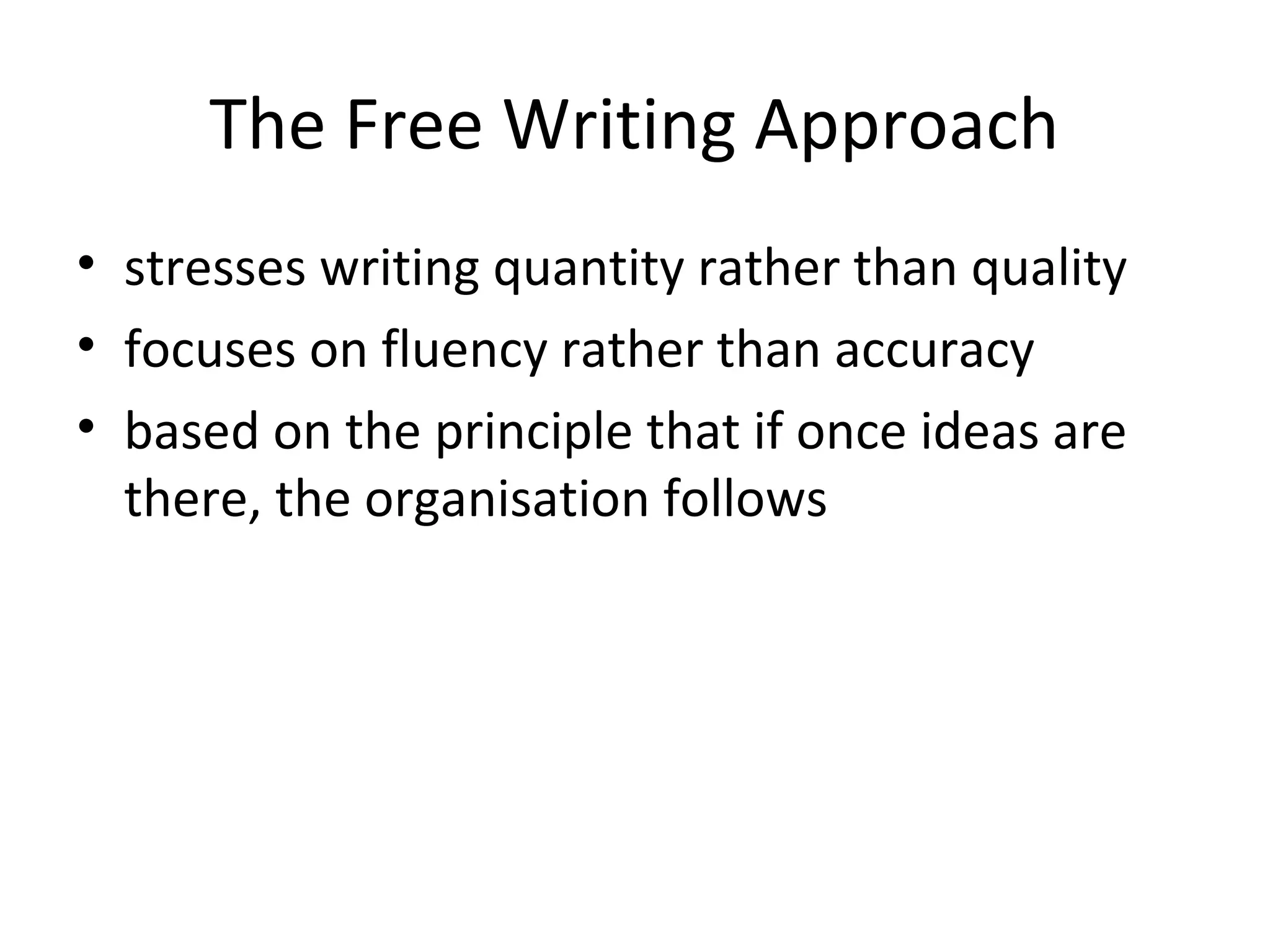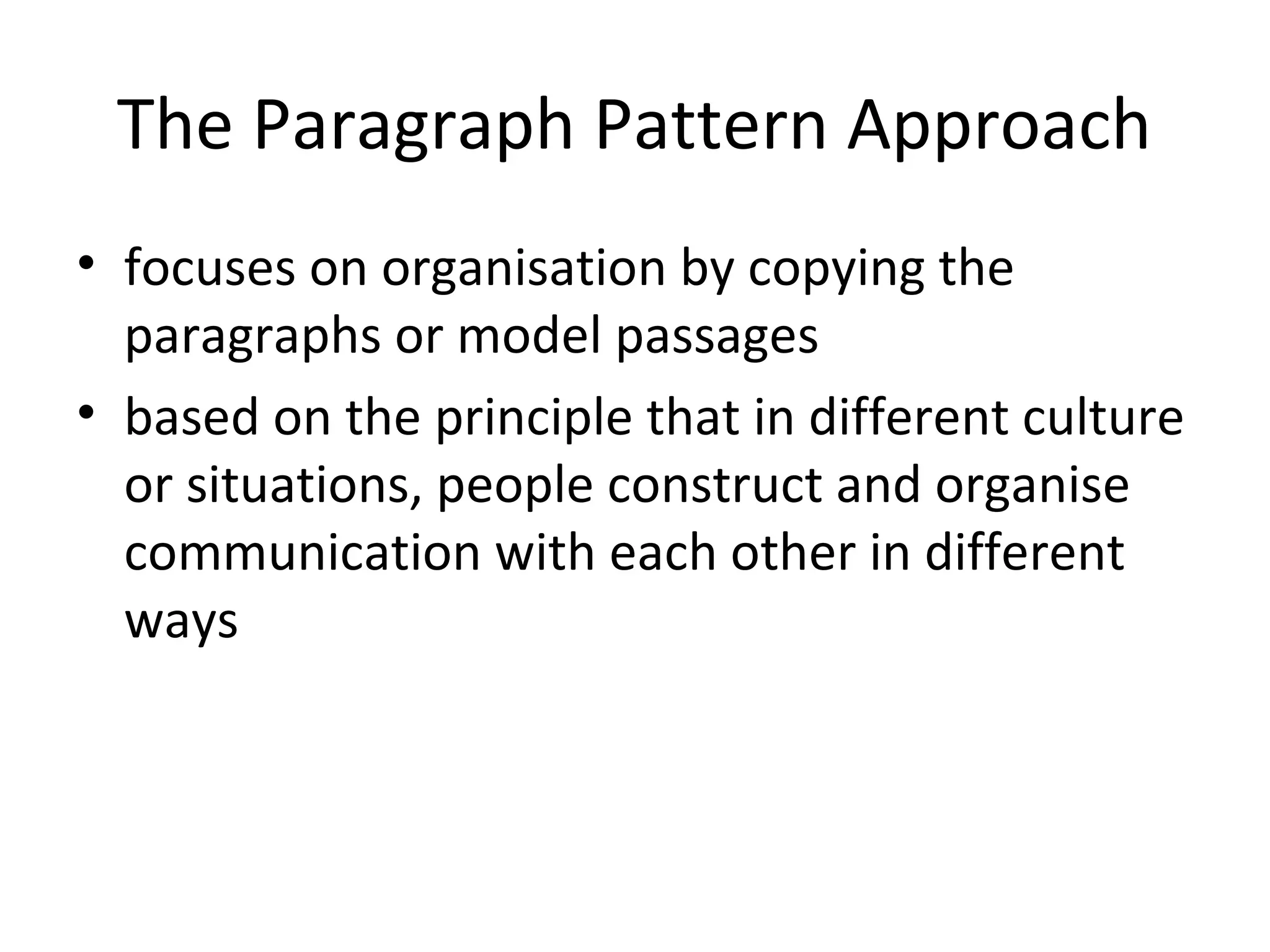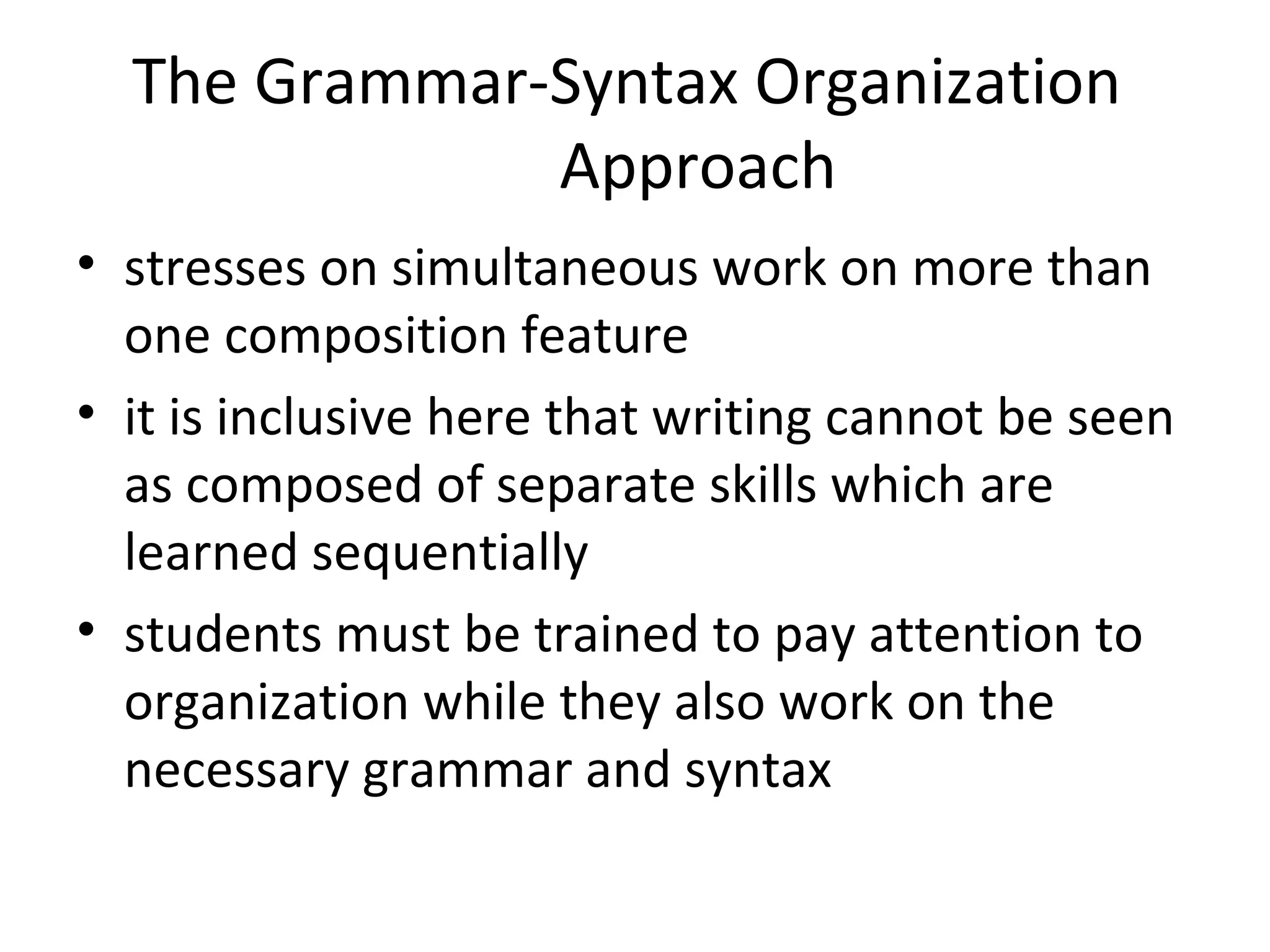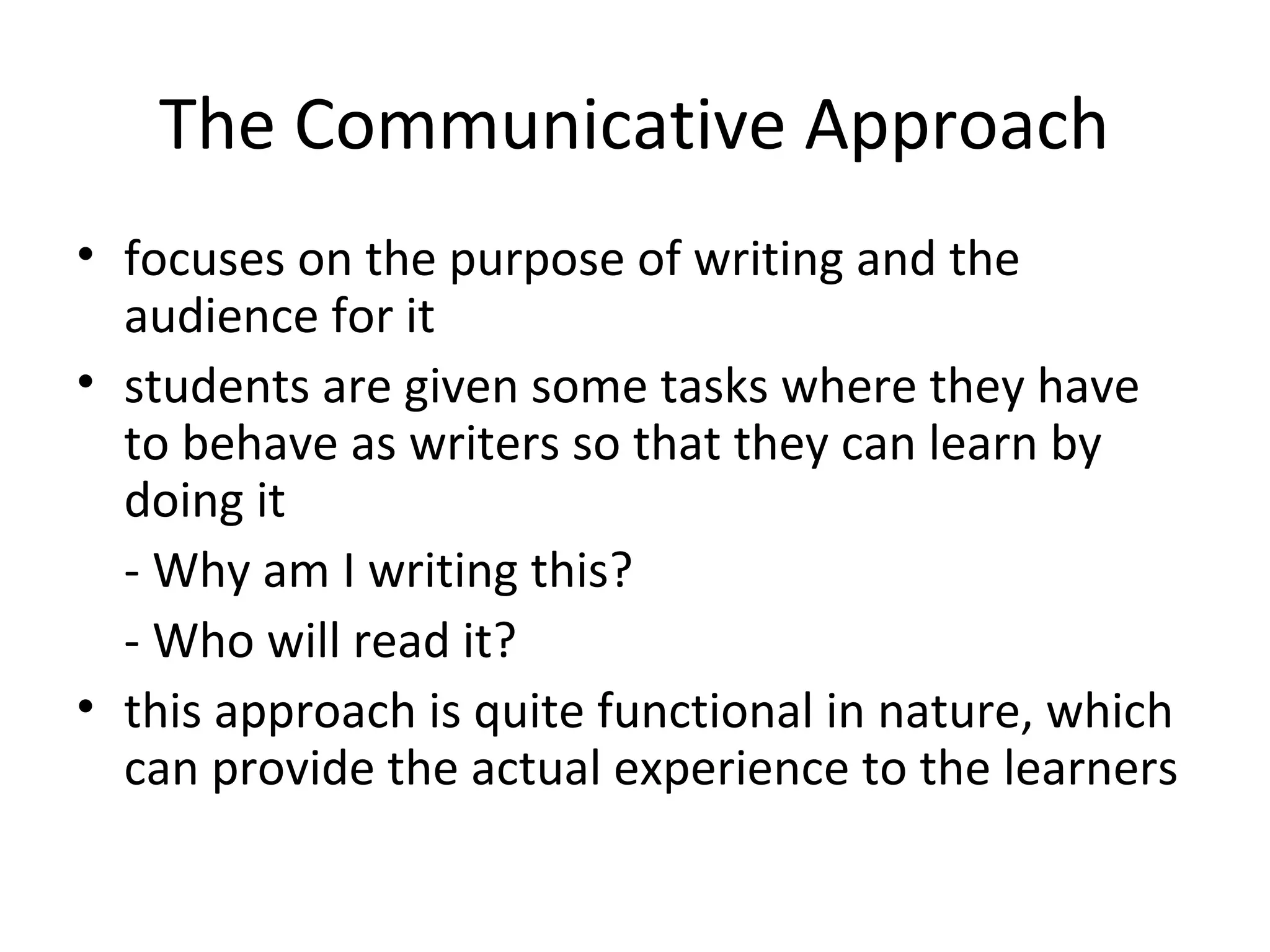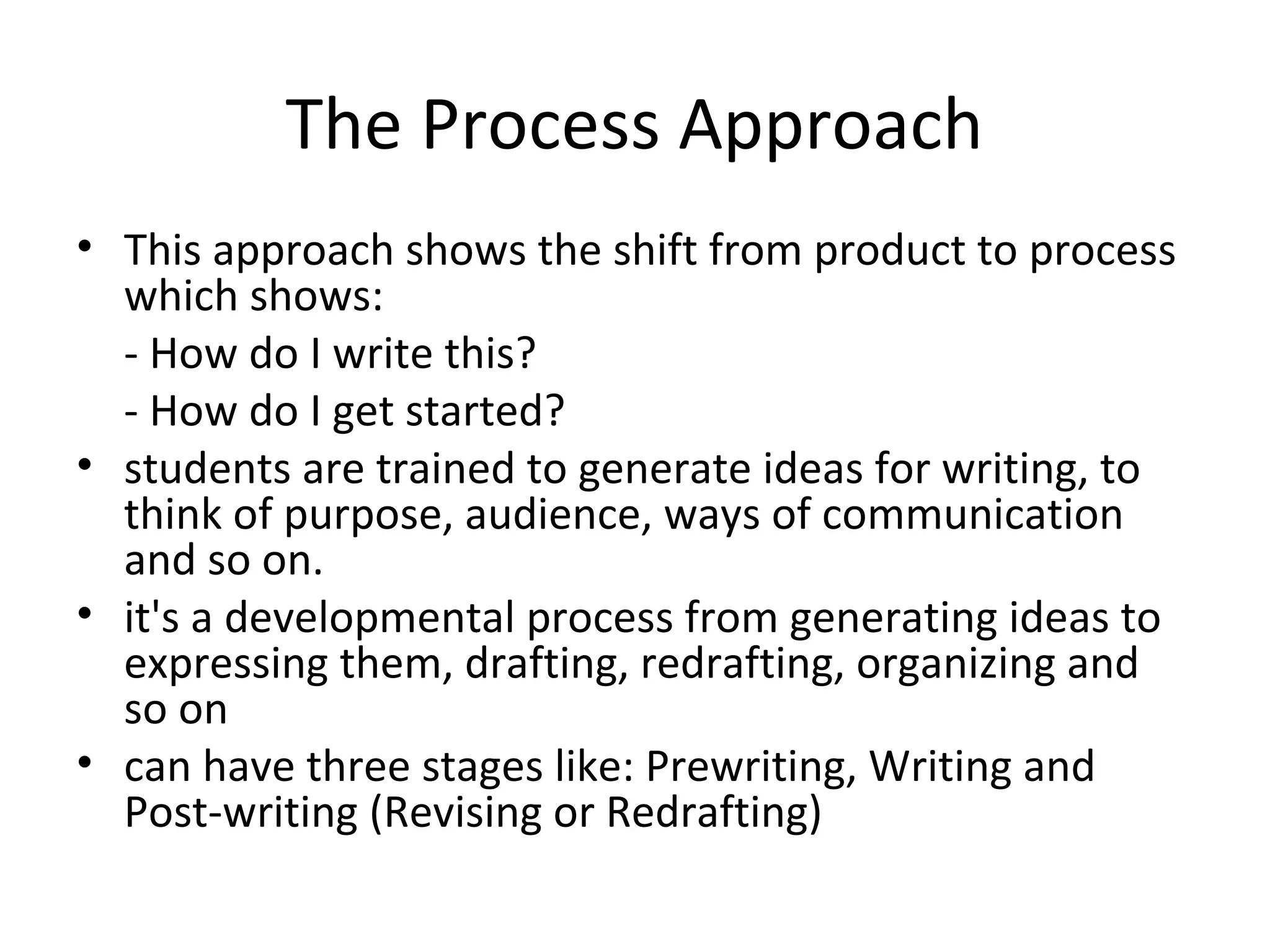The document outlines six approaches to teaching writing: 1) The Controlled to Free Approach focuses on accuracy through controlled exercises leading to free writing. 2) The Free Writing Approach stresses quantity over quality. 3) The Paragraph Pattern Approach copies model paragraphs. 4) The Grammar-Syntax Organization Approach works on composition features simultaneously. 5) The Communicative Approach focuses on purpose and audience. 6) The Process Approach views writing as a process from idea generation to redrafting.
